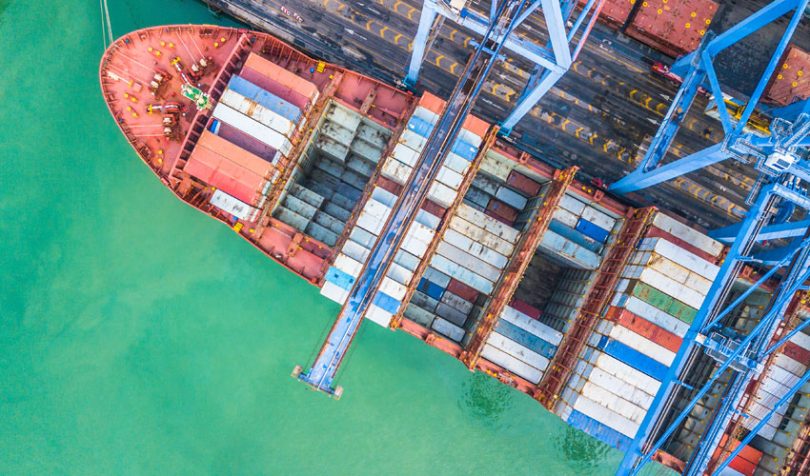Highlights:
- Supply chain finance is an efficient way to address COVID-19 SME funding challenges
- Mastercard Track is a useful tool to make SME KYC more efficient
- Banks, others can pool SCF finance funding through Tradeteq partnership
- We speculate this is an efficient structure for COVID-19 government finance
Marco Polo, the blockchain trade finance network with more than 30 banks, is about to launch an accounts payable solution called SME Early Pay in conjunction with Mastercard.
The Asian Development Bank annually publishes reports about those who struggle to secure trade finance, the so-called trade finance gap. It estimates there’s $1.5 billion of trade that nobody is willing to fund and the rejection rate for SME’s is 45% compared to 17% for multinationals.
“More than three-quarters (76%) of the surveyed banks reported that anti-money laundering (AML) and know-your-customer (KYC) regulations are major obstacles to expanding their trade financing operations,” says the report. Back in September, it quoted 60% of banks as expecting the gap to increase in the next two years.
Given the COVID-19 crisis, what might that figure now be?
And the other big deterrent is risk. SMEs don’t have the same track record and financial transparency. The benefit of supply chain finance (SCF) versus trade finance is that the credit risk is based on the large buyer’s credit rating as opposed to the supplier’s. Supply chain finance is proving popular with JP Morgan forming an alliance with SCF platform Taulia last week.
How is SME Early Pay unique?
So the question is, how is SME Early Pay different from other SCF solutions? Firstly, it’s targeting the SME suppliers not just the larger ones where many solutions focus. In order to do so, it has a novel onboarding approach to address the KYC friction.
And potentially it might have larger network effects. The launch timing has been brought forward to help with COVID-19. We’d speculate that government funding to help companies during the crisis could be targeted at this area in the future.
Identity is priceless
One of the advantages of Marco Polo’s SME Early Pay is the adoption of the Mastercard Track solution, which at its core is a business identity solution with compliance elements, so it checks sanctions lists and the like. It’s a key tool to help to address KYC in a cost effective manner and is already being used by several Procure to Pay solutions. So there’s a strong likelihood that the supplier is already in the database.
Mastercard Track can also process the invoice payments on the Mastercard payment rails, but that’s optional in SME Early Pay.
Plus, Marco Polo comes with some in-built ERP integrations to reduce friction. But for those that want to get going quickly, uploading spreadsheets is also an option.
Where’s the money?
A bank can sign up a big corporate client and use SME Early Pay as the technology solution for supply chain finance. But to get things moving, Marco Polo is looking at helping to find the large corporate buyers and either match them up with banks or create a pool of funds. With a pool (or a special purpose vehicle SPV), banks can choose to finance just a proportion of a buyer’s suppliers and hedge funds or high net worth individuals could invest alongside.
To help with the pooling, Marco Polo is partnering with the Tradeteq solution, which usually matches funders with factoring and other specialist trade finance solutions.
And should governments decide to use supply chain finance as a COVID-19 stimulus tool, it would make sense for them to put money in these special purpose vehicles alongside banks. Given the challenges of doling out loans individually, this seems more efficient.
What’s the status?
The aim is to go live in June, but no corporates have officially signed up as yet.
The core Marco Polo platform, which offers receivables financing and payment commitments, has been ready to go for several months, but no banks have reached production so far. And unfortunately, the crisis is not going to help.
“These facilities are not just like signing up for Netflix – there’s quite a lot of money involved,” Marco Polo’s Oliver Belin told Ledger Insights. “You have to review the credit risk. You can’t just on a phone call sign up a $50m or $100m credit line. So you have to meet people which is difficult right now.”
He continued: “And obviously it’s new technology so banks internally have to be familiar and they have to also educate the market, educate their clients. It takes time.”
So it remains to be seen whether the SCF solution proves easier or not. But given the acute demand to fund SMEs, decisions may have to be made without in-person meetings.
What’s the blockchain angle?
Marco Polo is developed by TradeIX, whose team has a track record in SCF at PrimeRevenue, and the platform uses R3’s Corda enterprise blockchain.
For pure trade finance, the benefits of blockchain are more obvious. You have banks, buyers, suppliers, logistics and insurers and they can all share a single source of data in a trusted decentralized manner. Plus, there are significant network effects.
But for supply chain finance, where most of the platforms are already digital but centralized, the advantages are less obvious. Marco Polo’s biggest advantage is it has already signed up a large number of banks to its network.
Using securitization to package up trade finance debt is enhanced by blockchain, which enables tokenization and provides transparency into the underlying assets. But that’s also viable with a centralized solution such as Tradeteq’s, which does not use distributed ledger technology (DLT).
Other platforms are leveraging the advantages of blockchain for SCF. In China, there’s LinkLogis, which is in production at scale, backed by Tencent and has partnered with Standard Chartered. It’s offering multi-tier supply chain finance. In other words, finance is also offered to the supplier’s supplier. Here, blockchain permissions may be an advantage, although that could also be achievable in a centralized solution.
At the more bleeding edge of public blockchains and decentralized finance, SCF provider Tradeshift is exploring tokenizing finance assets. Taulia’s founders are doing something similar at Centrifuge. While these might be easily dismissed for now, they shouldn’t be. Because where Marco Polo offers an evolutionary path for banks, these two are potential bank disruptors.






